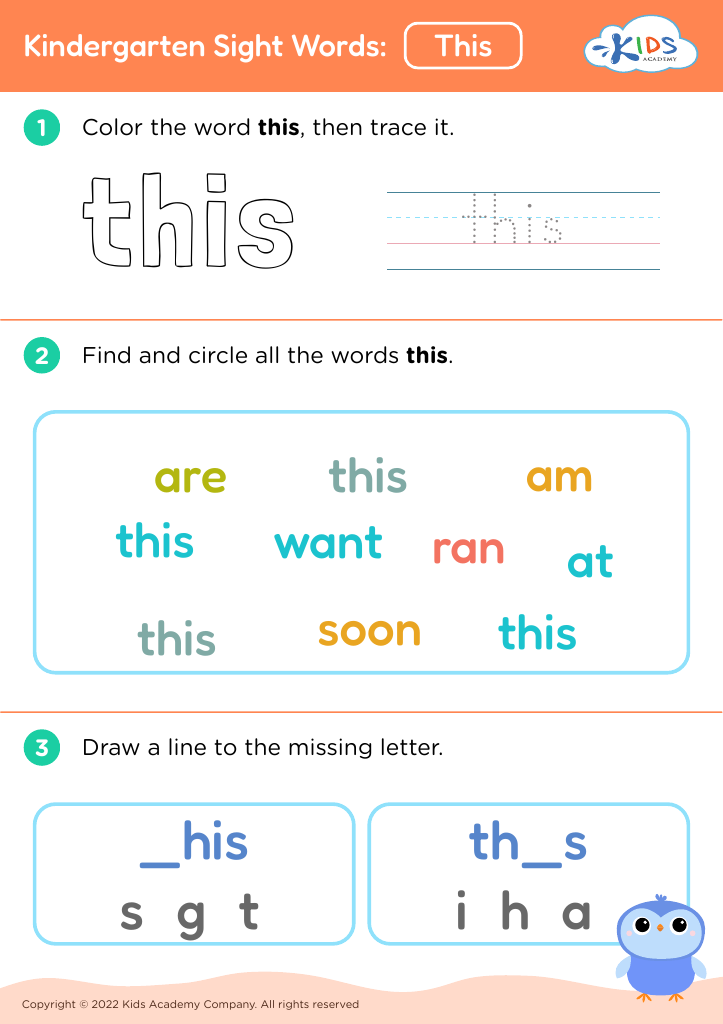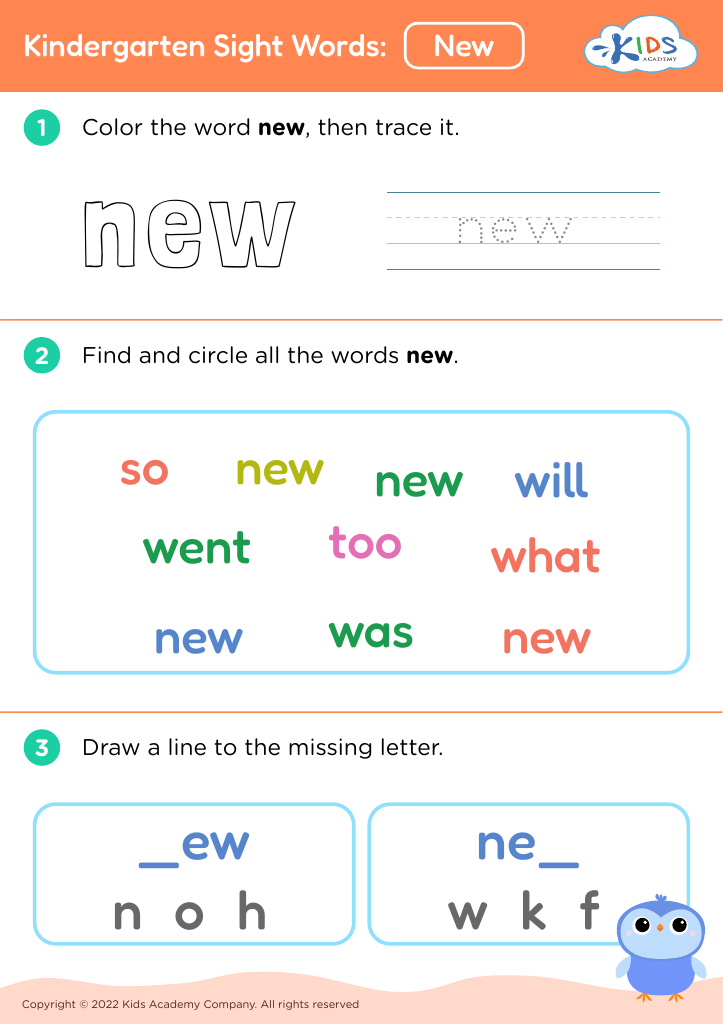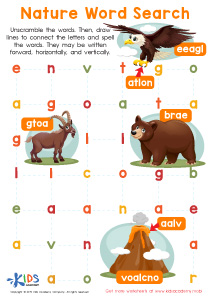Counting practice Sight Words Worksheets for Ages 4-6
3 filtered results
-
From - To
Engage your little learners with our Counting Practice Sight Words Worksheets, specifically designed for ages 4-6! These interactive resources blend number practice with essential sight word recognition, promoting both math and literacy skills in a fun and engaging way. Each worksheet encourages children to connect numerical concepts with familiar words, enhancing their recall and comprehension. Perfect for classroom settings or at-home learning, these worksheets foster essential developmental skills while keeping children excited about learning. Empower your young learners to master their sight words and counting through colorful activities that capture their attention and spark their imagination. Start their learning journey today!
Counting practice and sight words are foundational skills for children aged 4 to 6, forming the bedrock of their literacy and numeracy development. First, mastering counting fosters mathematical understanding, laying the groundwork for future concepts, such as addition and subtraction. It promotes cognitive skills, including problem-solving and critical thinking, crucial for academic success.
Sight words, on the other hand, are frequently used words that young readers must recognize quickly to improve reading fluency. By focusing on these words, children build confidence in their reading abilities, allowing them to tackle more complex texts. Recognizing sight words also enhances their comprehension skills, as children can focus on the meaning of sentences rather than decoding individual words.
Moreover, engaging in counting and sight word activities creates an interactive and enjoyable learning environment. Parents and teachers play a vital role in fostering a love for learning, and fun activities—like games, songs, or puzzles—can significantly enhance motivation.
Overall, incorporating counting and sight word practices into daily routines not only sets the stage for academic achievement but also nurtures a lifelong love for learning, making it essential for parents and educators to prioritize these skills for young children.

























